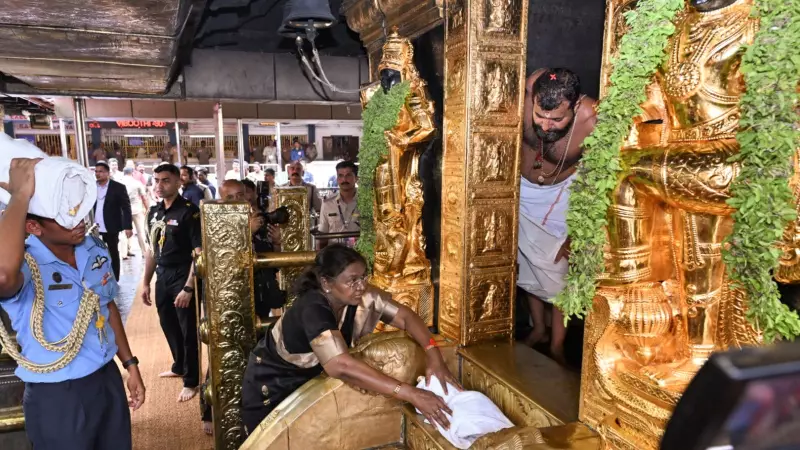
In a landmark moment that blended spiritual significance with constitutional dignity, President Droupadi Murmu created history on Sunday by becoming the first sitting President of India to visit the revered Sabarimala Lord Ayyappa Temple.
The President's visit to the hill shrine marked a significant chapter in her ongoing Kerala tour, where she undertook the pilgrimage to offer prayers at one of Hinduism's most sacred sites. The temple, nestled in the Western Ghats, witnessed this historic occasion with traditional ceremonial honors.
A Spiritual Journey of National Importance
President Murmu arrived at the temple premises amid tight security and traditional temple rituals. The Travancore Devaswom Board, which administers the temple, extended a warm welcome to the President, following all customary protocols reserved for distinguished guests.
The visit holds special significance as Sabarimala has been at the center of numerous socio-religious discussions in recent years. The President's pilgrimage demonstrates the unifying power of India's diverse spiritual traditions and constitutional values.
Traditional Honors and Temple Rituals
According to temple officials, President Murmu participated in the customary rituals and offered prayers at the sanctum sanctorum. The temple authorities presented her with traditional offerings including prasadam and appam, the special sweet preparation offered to devotees.
The historic nature of this visit was emphasized by the fact that no sitting President had previously visited the temple during their term. This pilgrimage sets a new precedent in the relationship between constitutional offices and India's rich spiritual heritage.
Broader Implications and Symbolism
Political observers note that the President's visit carries significant symbolic weight, coming at a time when the state is preparing for important political developments. The gesture is seen as reinforcing the cultural and spiritual unity of the nation while respecting regional traditions.
The President's Kerala itinerary, which includes this historic temple visit, underscores the importance of preserving India's diverse cultural and religious practices while maintaining constitutional dignity and national unity.






